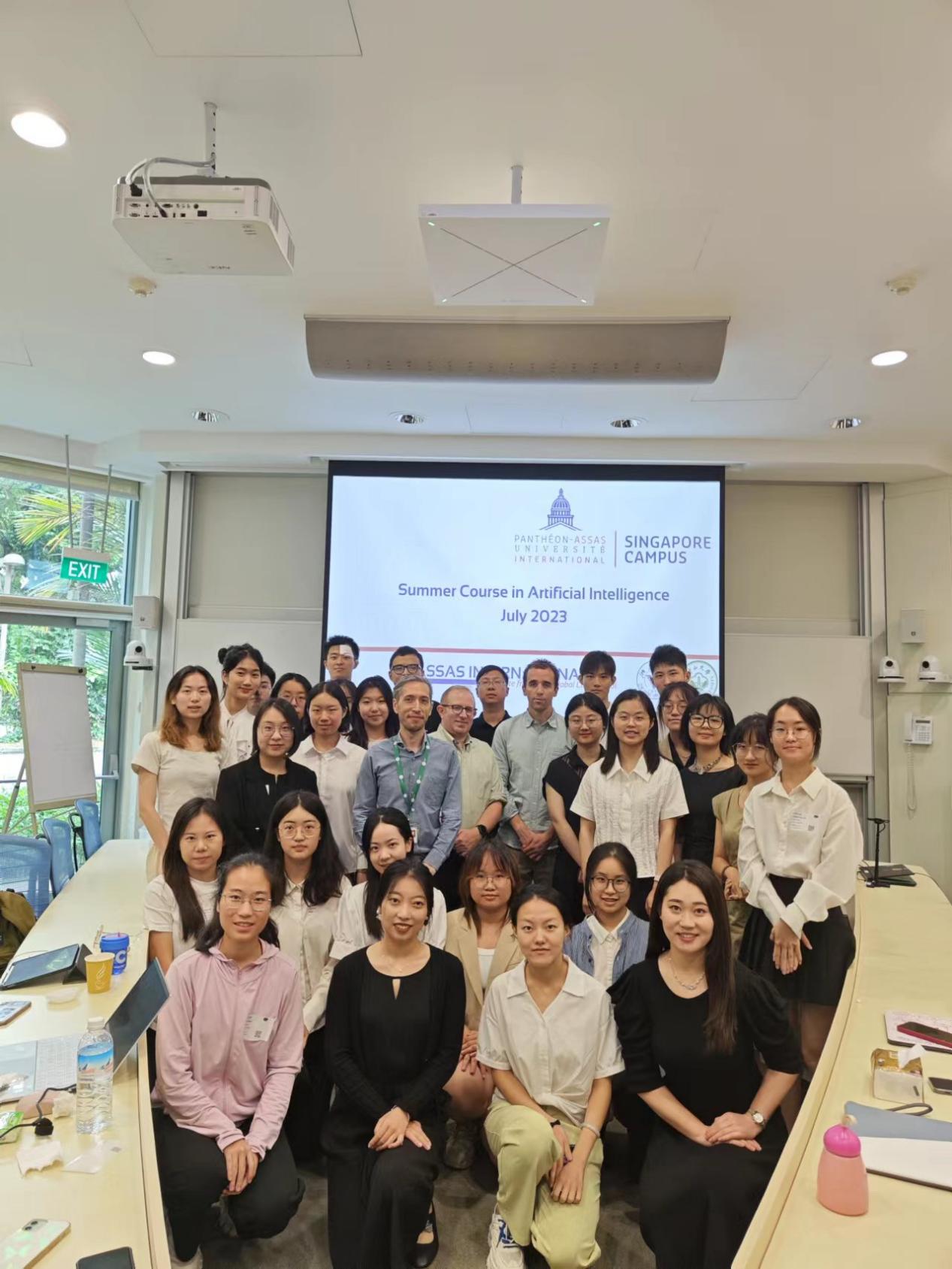- 2025 Year in Review: 80th Anniversary Highlights at Zhejiang University Guanghua Law School2025-12-31
- The Second China–Latin America and Caribbean Region Legal Professionals Exchange Program (Hangzhou Session) was successfully held at Zhejiang University.2025-12-18
- “If the World is a Family” — Student Exchange and Legal Practice Seminar between Newcastle Law School and Guanghua Law School2025-12-08
From 16th July to 23rd July 2023, teachers and students from Guanghua Law School of Zhejiang University went to Singapore for a seven-day summer course in Artificial Intelligence. A group of 30 students, including 13 graduate students and 17 undergraduates, participated in the study programme. Zhou Xiang, the master tutor of Guanghua Law school and Meng Tengfei, the secretary of the Education and Teaching Center led the group.
On the first morning of the study tour, our students visited the iconic landmark of Singapore, the Merlion, and admired the beautiful natural scenery and unique charm of this garden city. In the afternoon, our group went to the Singapore campus of INSEAD, a renowned European business school, to attend a course on digital law. Mr. Buci Chan, warmly welcomed us and gave us commemorative gifts and a campus guide. We were fortunate to have Professor Dov GREENBAUM deliver a special lecture on artificial intelligence (AI), where he explained what AI is and its connection to legal matters. This lecture provided us with a preliminary understanding of AI and its implications in the legal field.
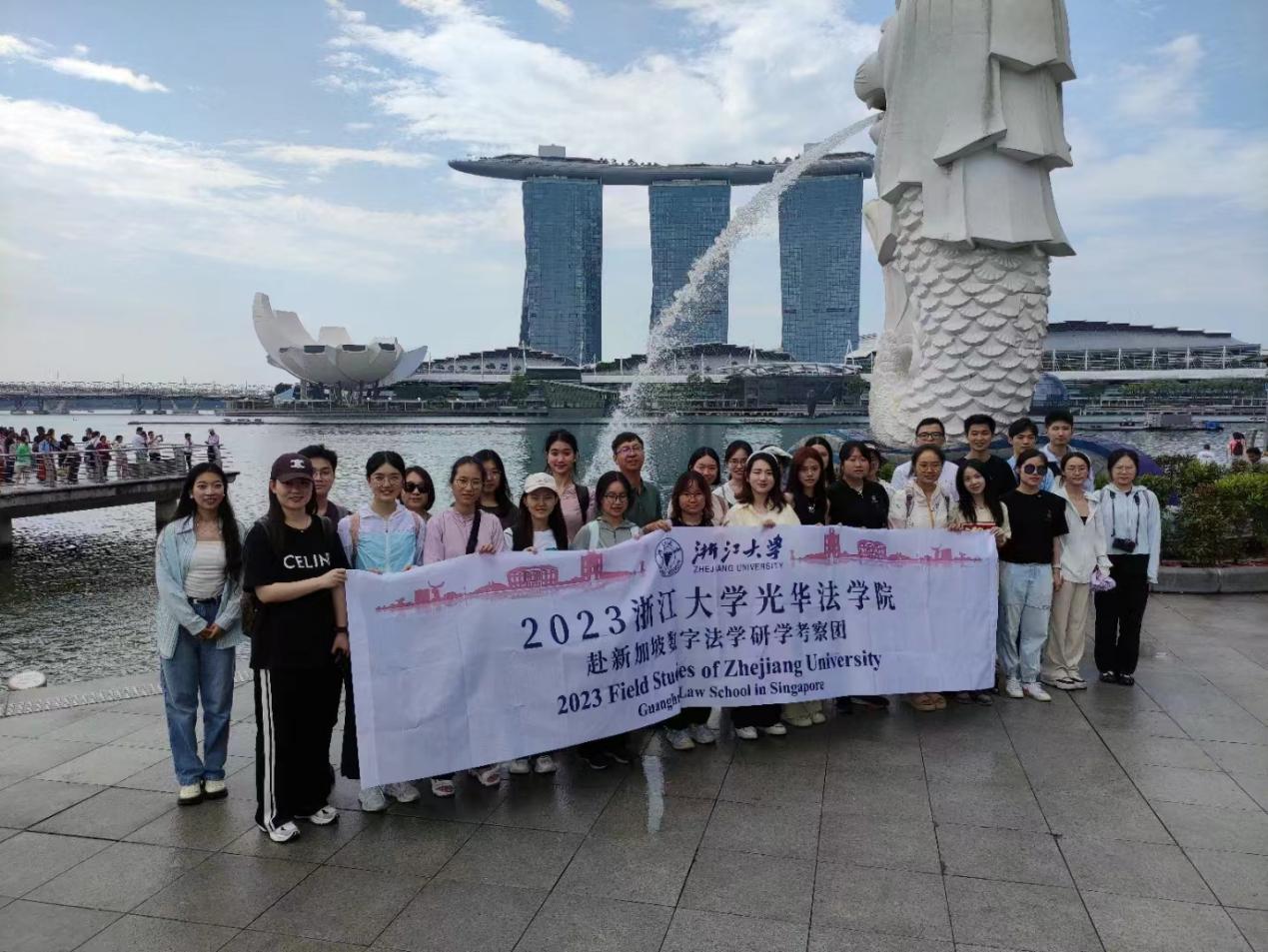
The next day, after studying Professor Dov GREENBAUM's second lecture on artificial intelligence, the group visited the Singapore office of the World Intellectual Property Organization (WIPO). The WIPO staff welcomed us and introduced this United Nations organization with 193 member countries. They focused on explaining the organization's global services for cross-border protection of intellectual property and dispute resolution, as well as its role in developing international intellectual property rules that consider the interests of all parties. The students actively interacted with the office staff, discussing current hot topics in intellectual property law.
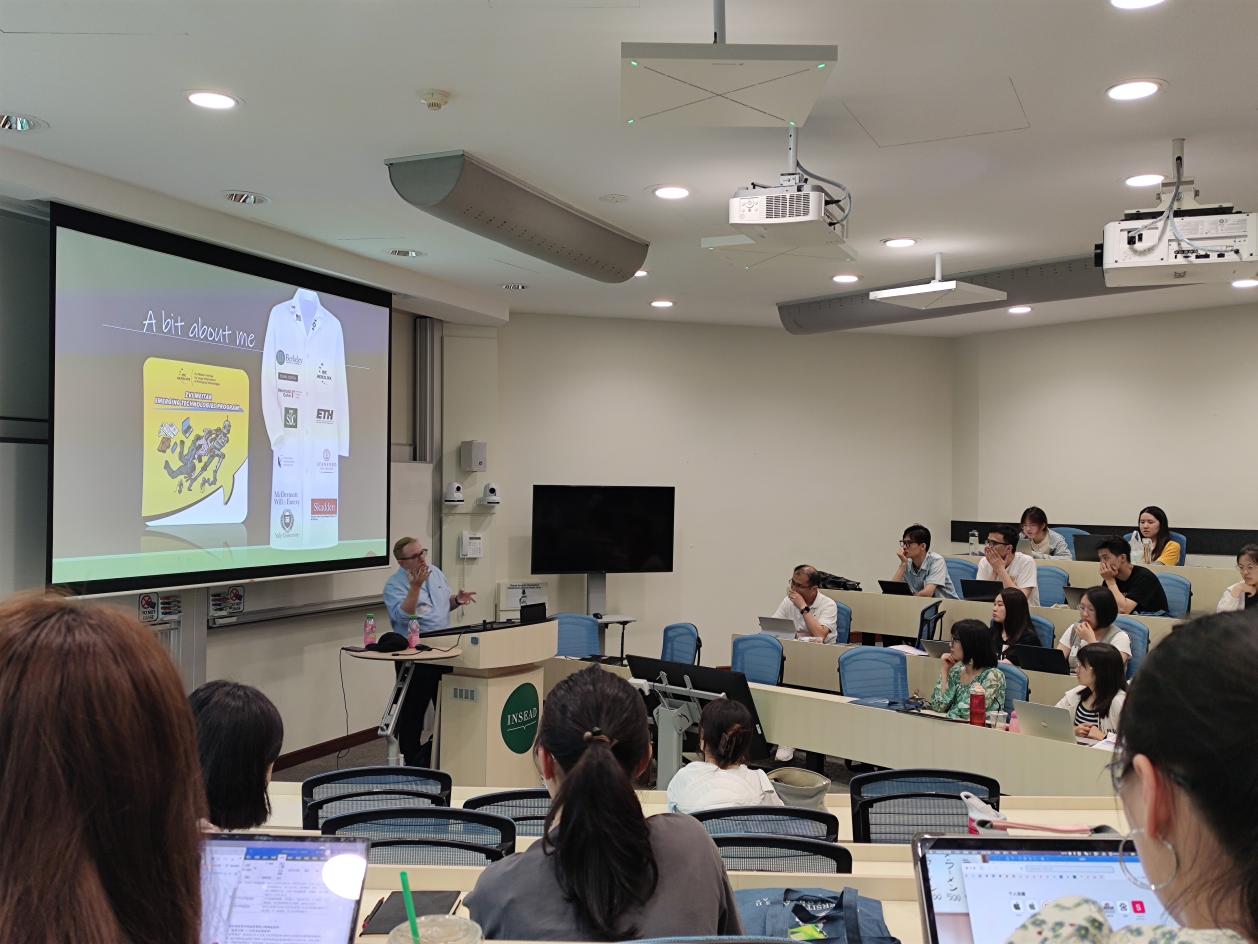
(Professor Dov GREENBAUM's class)
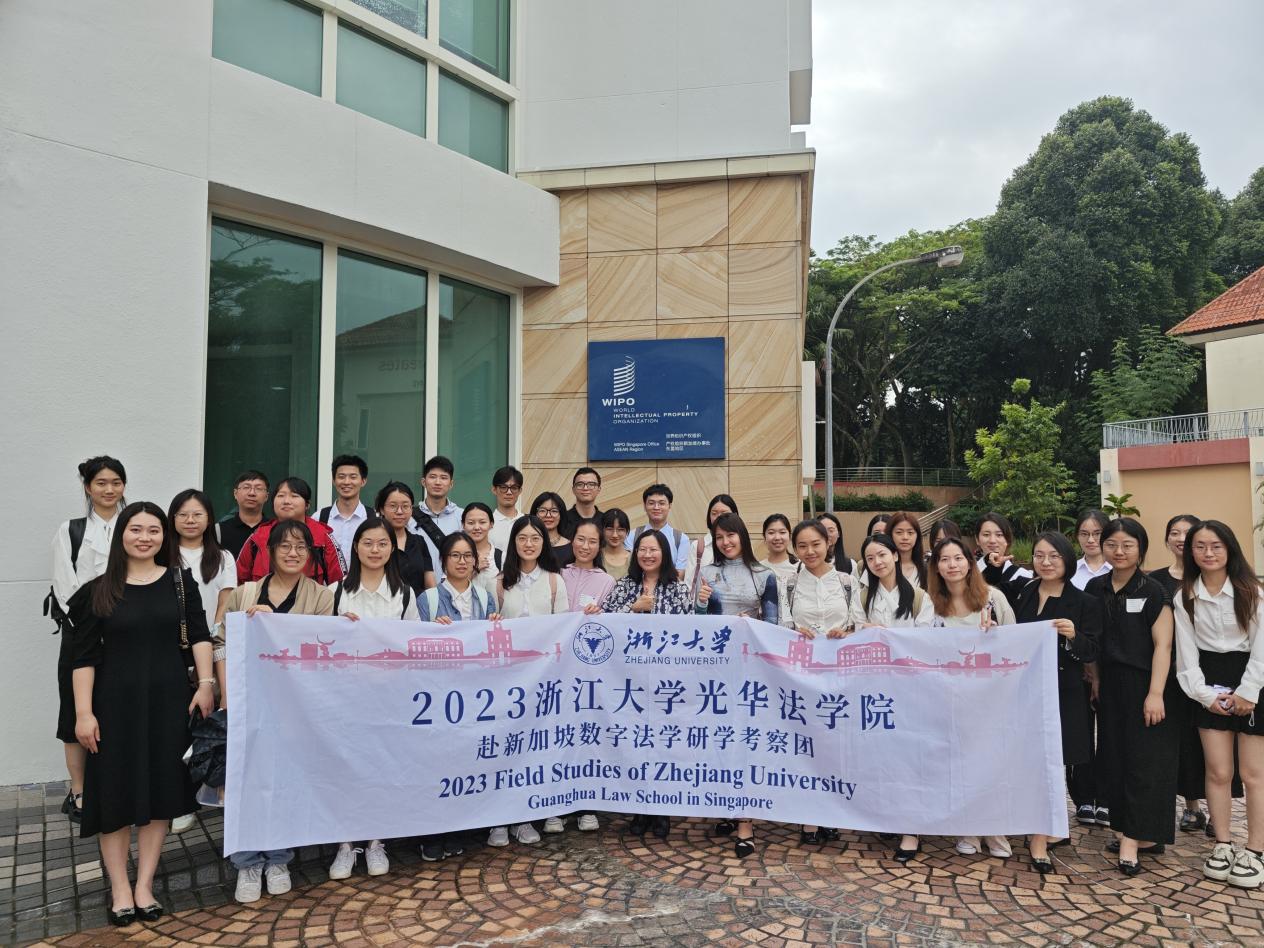
(Photo with WIPO’ staff)
On the third day, under the guidance of Professor Quentin LIPPMANN, our students delved deeper into the applications of AI in the field of law. By comparing the use of AI in aiding judgment in different countries, it sparked students thoughts on the pros and cons of AI in the legal field, and they came up with their own solutions. After lunch, our group visited the Faculty of Law at the Singapore Management University (SMU). Vice Dean Zhang Wei introduced the establishment of the Faculty of Law, the achievements in various disciplines, and the postgraduate programs offered at the SMU. He also answered the questions raised by the students. After the visit, we went to the Supreme Court of Singapore for a tour and attended court hearings as observers.
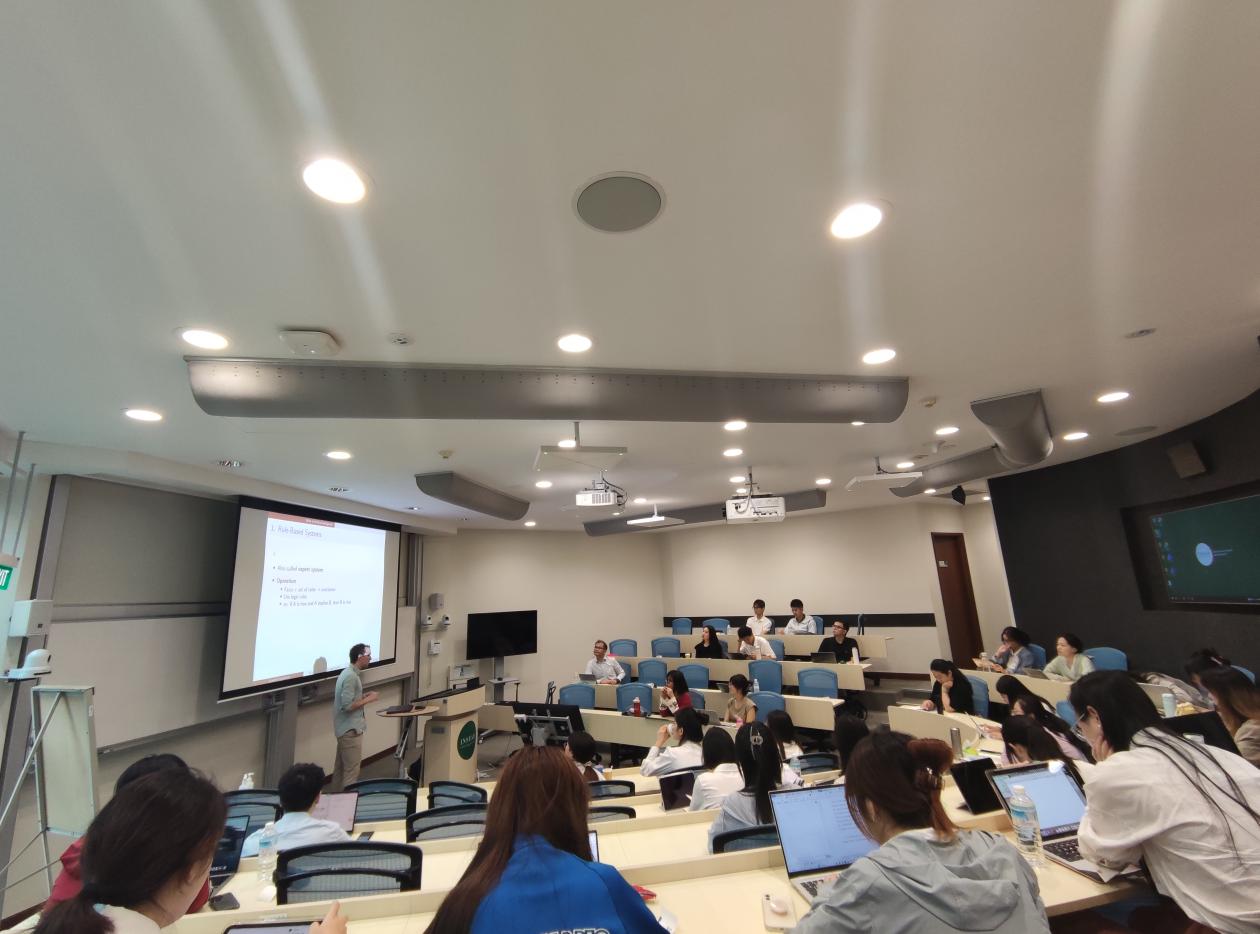
(Professor Quentin LIPPMANN’s class)
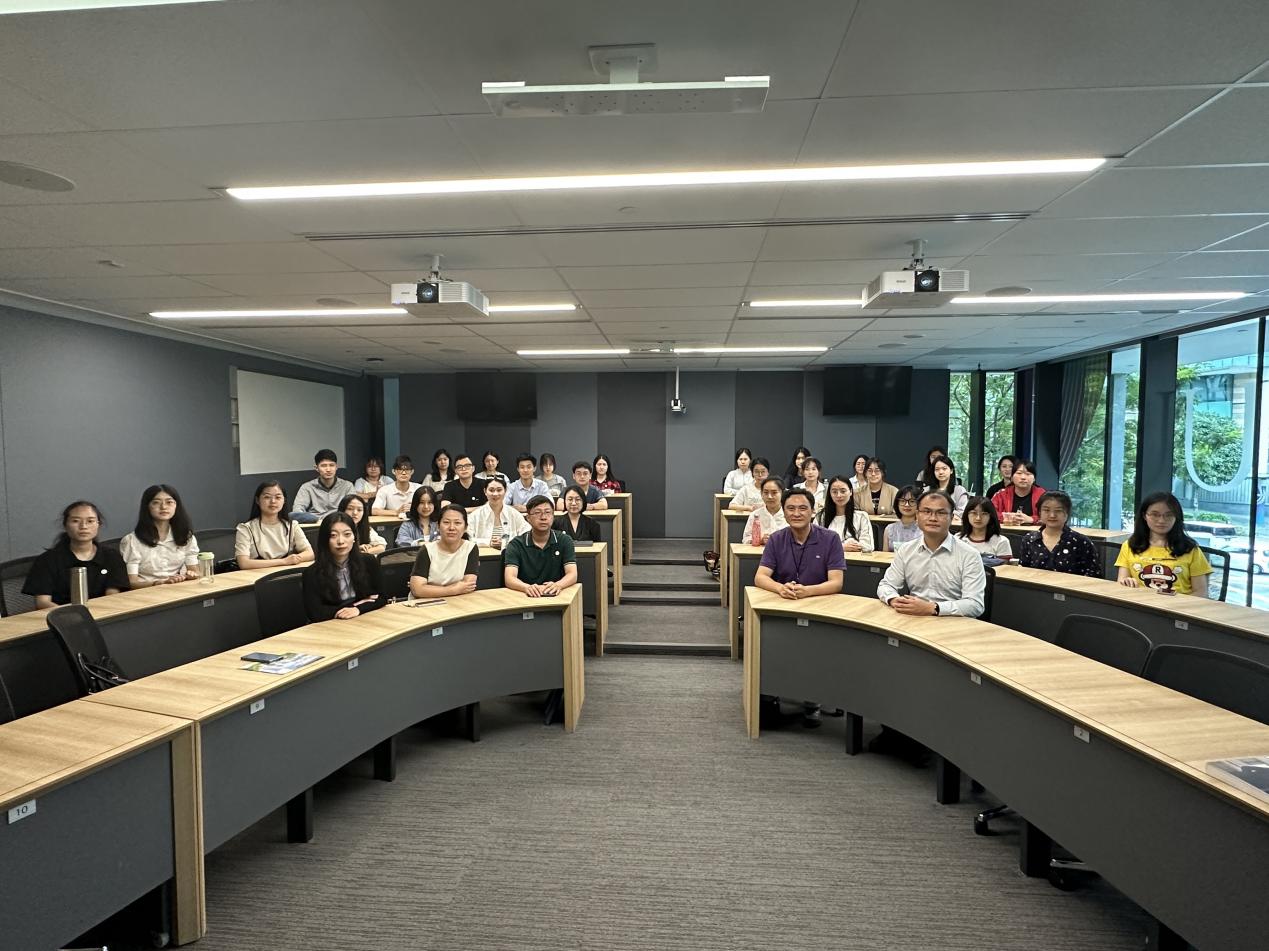
(Photo with Vice Dean Zhang Wei in SMU)
On the morning of the fourth day, students visited the renowned Maxwell Chambers in Singapore, home to the International Arbitration Centre (SIAC). Students had the opportunity to engage in discussions and exchanges with the staff of SIAC, enhancing their understanding of international arbitration. Afterwards, our group explored the Singapore City Gallery, where we learned about the city's development from its founding to the present. The gallery showcased urban planning, green space development, and the preservation of historical buildings, providing us with a deeper understanding of this garden city.
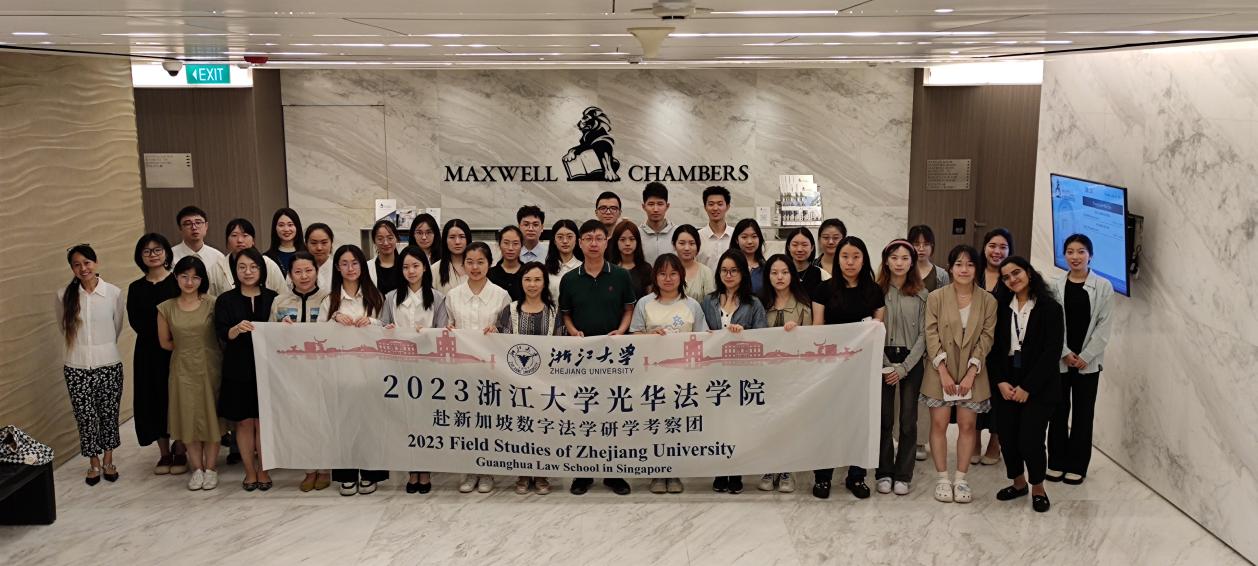
(Photo in Maxwell Chambers)
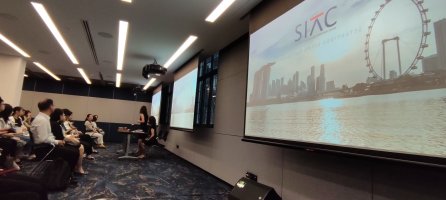
(SIAC Panel discussion)
On the fifth day, Professor Quentin LIPPMANN discussed the biases and ethical issues of artificial intelligence and law with the students and organized tests for the students to deepen their understanding of the course material. The AI and digital law-related courses of this study trip came to an end with the exchange of experiences and group photos.
(Photo with professors)
The Singapore trip was enriching for the faculty and students’ life, broadening their international perspectives. The trip also allowed the students to gain insights into Singapore's legal system and culture. It encouraged the students to combine theory and practice, contributing to the development of a rule of law society.
Editor/Meng Tengfei
